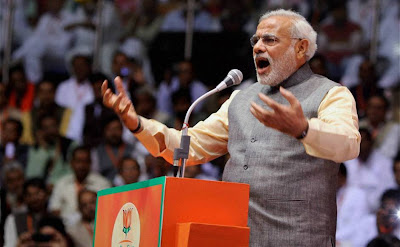My view after reading the differences between the two (http://www.hindustantimes.com/Images/popup/2013/12/AAP%20Press%20Release%20Lokpal.pdf)
are as follows
1. Though lokpal seems to be loaded on the side of parliamentarians, in a democracy you cannot fundamentally distrust politicians, after all in the case of delhi (Assuming similar law is passed in Delhi as promised), a party like AAP can effectively have 2 voices (CM+speaker) so I think it is a clause that need not seriously hamper the workings.
Also in Janlokpal the alternative is to have 2 SC Judges, 2 HC Judges and 1 nominee from CAG CVC CEC all being directly or indirectly appointed by govt and therfore effectively its the same thing. (All of them can lured with post retirement jobs as is being followed upon today)
2. I think there is a need to ensure random and frivolous complaints are not entertained, but a compromise could have been found like in US where a minimum of 1 Lakh signatories are needed.
3.This point is valid, but lokpal has jurisdiction to use any investigative agency, so in effect there is always scope for cleverer lokpal to get around the caged parrot.
4. Completely agree with need for wishtle blower protection, but I don't think this point alone is enough reason to reject lokpal. I think it is important matter but is doesn't negate or the workings of a lokpal severly.
5. Citizens charter, I have not been able to gather much from public sources about what it is, but from the initial readings from (http://infochangeindia.org/governance/analysis/citizen-s-charters-putting-people-first.html) I can gather that citizens charter is something to do with service mechanism than prosecuting corrupt officers, though it does help in preventing corruption for service, My own experience with similar one in Karnataka is that they need not help in that matter as there are always ways to delay and prolong the delivery and still harass the common man
6. I agree with this aspect and all state governments should have one, you can't wait for AAP to win government in West Bengal lets us say for the state to get lokpal/lokayukta
7. I think this is needed as you might be aware that even PIL when introduced didn't have punitive action against frivolous complaints but later this was introduced to stop them. 1 Lakh is too little an amount for a person who is capable enough to launch a frivolous complaint, imagine that during a honest officer's sons wedding, his rival initiates a complaint and a raid and will 1 lakh be deterrent enough to prevent such damage. Also punishment will be always when the complaint is proven to be frivolous rather than in ambiguous cases.
8. Except Judges, everyone is almost included. Now even in MPs only their voting pattern and questioning is not covered. When taken the total corruption play in the nation, this represents a tiny very tiny part and hence this should not be a sufficient reason for killing this bill. MPs corruption is primarily from hundreds of other means and the corruption from voting and questioning is too trivial and hence rejection of lokpal on this one issue seems frivolous
But after addressing out the differences between Lokpal and "Jokepal". I want to stress that lokpal or the Jokepal alone is not enough to stop or prosecute corruption. The reason for this is slow pace of judiciary. Even if lokpal seriously investigates the case and presents all evidence, it will still take tremendous time and effort to get conviction which no lokpal or other such authority can have. The resources and bandwidth to prosecute so many offenders would probably need to create a parallel administrative system.
These points I am going to validate based on the study conducted by Azim Premiji foundation on effectiveness of lokpal. (http://www.azimpremjiuniversity.edu.in/sites/default/files/userfiles/files/epw-16961.pdf) Let me quote some line from the results and conclusions of the study based on effectiveness of the Karnataka Lokayukta which is considered as a model lokayukta
"The success of the Karnataka Lokayukta in investigating cases suggests that the existing legislative and bureaucratic framework in Karnataka does not impede investigation of corruption offences. The Indian public debate on the Lokpal has focused extensively on the need to equip the institution with extraordinary powers of investigation. Our analysis leads to the conclusion that much of the Indian debate has sought to extinguish a problem that does not have a very significant impact on the effectiveness of the anti-corruption agency.
Concluding Remarks
The presumption of a criminal conviction model is at the core of the Lokpal Bill, which means that it will come up against the same environmental limits – the efficacy of the criminal justice system – that the Lokayukta in Karnataka confronts. Without highly contentious legal reforms, an extremely powerful agency, which the Jan Lokpal Bill promises to establish, can at best marginally improve investigation rates and filing of charge sheet in corruption cases without securing more convictions. The proposal for the Lokpal at the moment fails to address this core problem and for that reason is bound to fail to achieve its primary purpose: the criminal conviction of corrupt officials"
I ask my friends with AAP sympathizers and good friends on whether my argument that this bill might not be perfect at what IAC initially wanted but is something that gets you the majority of what you wanted. (while fundamentally disagreeing on the view that Lokpal can solve the issues since there are far structural issues to be solved).
Also do you oppose the bill after nominal study of the bill or is it based on the fact that GOD "kejriwal" said so






















